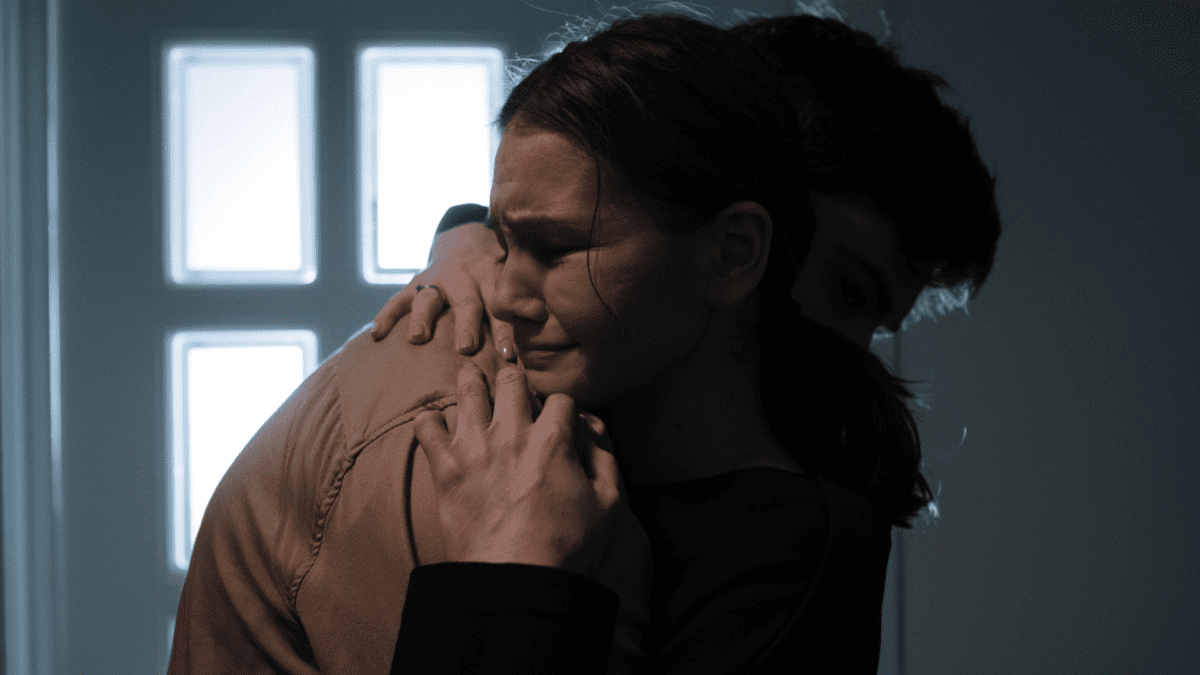
Emotional Self Harm
August 17, 2024
Attention Deficit Disorder: What is ADD?
August 17, 2024Grief and loss are universal experiences that touch us all at some point in our lives. However, not all grief is created equal, and understanding the different types of grief and loss disorders can help us navigate these difficult emotions with greater clarity and compassion.
It is important to differentiate between normal grief and more complex types of grief. Normal grief symptoms tend to fade over time, allowing individuals to accept their loss and regain functionality, whereas complicated grief symptoms persist and intensify.
Grief and loss come in many forms, impacting individuals differently. Understanding the common types of grief and loss disorders can help us navigate our emotions better.
Complicated Grief Disorder is characterized by intense feelings of longing and yearning for the deceased, accompanied by difficulty accepting the death. Prolonged Grief Disorder involves persistent grief symptoms lasting beyond the typical mourning period.
Disenfranchised Grief occurs when a person’s loss is not openly acknowledged or socially supported, leading to feelings of isolation. Anticipatory Grief refers to mourning a loss before it actually happens, often experienced by individuals facing terminal illness.
Each type presents unique challenges and requires tailored support to cope effectively. By recognizing these distinctions, we can provide better understanding and empathy toward those experiencing various forms of grief and loss disorders.
Complicated Grief Disorder
Dealing with the loss of a loved one can be incredibly challenging. Complicated Grief Disorder is a type of grief that doesn’t ease over time as expected. It’s like being stuck in an endless cycle of intense emotions, longing, and distress.
People with Complicated Grief Disorder may experience feelings of disbelief, anger, guilt, or even bitterness that persist for an extended period. They might have trouble accepting the reality of their loss or find it difficult to move forward with their lives. Intense emotional pain is another symptom characterized by overwhelming sadness, guilt, or anger.
Symptoms can include persistent yearning for the deceased, difficulty trusting others, avoidance of reminders related to the loss, and feeling disconnected from reality. Emotional numbness, an inability to experience positive emotions, is also common and often accompanied by sadness, anger, and guilt. These deep-rooted emotions can significantly impact daily functioning and overall well-being.
Seeking support from a mental health professional is crucial in managing Complicated Grief Disorder effectively. Counseling and therapy sessions tailored to address these specific issues can help individuals navigate through their complex emotions and develop coping strategies for moving forward positively.
Prolonged Grief Disorder
Have you ever experienced a loss that felt like it lingered longer than expected? Prolonged Grief Disorder, also known as Persistent Complex Bereavement Disorder, is a type of complicated or prolonged grief where the intense emotions and longing for the person who passed away continue to persist over an extended period. It goes beyond what is considered a normal grieving process and can significantly impact daily life.
Individuals with Prolonged Grief Disorder may find it challenging to accept the reality of their loss, experience intrusive thoughts or memories of their loved one, and struggle with feelings of emptiness or meaninglessness. This type of grief can interfere with relationships, work performance, and overall well-being.
The Diagnostic and Statistical Manual (DSM-5 and DSM-5-TR) recognizes Prolonged Grief Disorder as a mental health condition, highlighting the importance of ongoing research and debates regarding its diagnostic criteria.
It’s essential for those experiencing prolonged grief to seek support from mental health professionals who specialize in grief counseling. Therapy sessions can help individuals navigate through their emotions, develop coping strategies, and gradually adjust to life without their loved ones. Additionally, medications may be prescribed in some cases to manage symptoms such as depression or anxiety associated with prolonged grief.
Coping with Prolonged Grief Disorder requires patience, self-compassion, and resilience. Finding healthy ways to express emotions, maintaining connections with supportive friends and family members, and engaging in self-care activities like exercise or hobbies are all beneficial strategies for managing this challenging condition. Remember that healing from prolonged grief takes time; allow yourself space to grieve while also taking steps towards healing and finding peace within yourself.
Disenfranchised Grief
Disenfranchised grief is a type of mourning that goes unacknowledged or unsupported by society. It occurs when an individual experiences a loss that is not openly recognized or socially accepted. This could be due to the nature of the relationship, such as losing a pet, ex-spouse, or co-worker.
People experiencing disenfranchised grief may feel isolated and misunderstood because their pain is invalidated by others. They might struggle to find closure and acceptance without the validation they would typically receive in more conventional forms of mourning.
This type of grief can be particularly challenging to navigate because individuals may internalize their emotions rather than seek support from friends and family. It’s essential for those experiencing disenfranchised grief to find alternative outlets for processing their feelings, such as therapy or support groups tailored to their specific situation.
Acknowledging disenfranchised grief and seeking help can lead to healing and eventual acceptance of the loss despite societal norms that may dismiss it.
Anticipatory Grief
Anticipatory Grief is a complex and often misunderstood type of grief that occurs before the actual loss takes place. It can happen when someone anticipates the death of a loved one due to an illness or terminal condition. This form of grief allows individuals to start processing their emotions and preparing for the inevitable loss.
People experiencing anticipatory grief may go through a range of emotions, including sadness, anxiety, guilt, and even relief in some cases. They may also struggle with feelings of helplessness and uncertainty about the future without their loved one by their side.
One key aspect of anticipatory grief is the opportunity it provides for individuals to say goodbye, express their love, and resolve any unresolved issues with the person who is dying. This process can be both painful and healing at the same time.
It’s essential for those going through anticipatory grief to seek support from friends, family, or professional counselors to navigate this challenging journey with compassion and understanding. By acknowledging these difficult emotions and allowing oneself to grieve before the loss occurs, individuals can begin to find ways to cope effectively during this emotionally intense period in their lives.
Symptoms and Signs of Each Type
When it comes to grief and loss disorders, each type manifests unique symptoms and signs, collectively known as symptoms of grief.
Complicated Grief Disorder is characterized by intense longing and yearning for the deceased, difficulty accepting the death, feeling numb or detached from others, and experiencing bitterness or anger related to the loss. Painful emotions are a significant aspect of complicated grief, often making it challenging for individuals to move forward in life.
Prolonged Grief Disorder involves persistent feelings of disbelief, emotional pain that doesn’t improve with time, avoiding reminders of the loss, trouble engaging in activities once enjoyed, and an overwhelming sense of emptiness.
Disenfranchised Grief may present as feeling unsupported in grief by others due to societal stigma or lack of recognition of the relationship with the deceased.
Anticipatory Grief includes sadness about future losses, preparing emotionally for an anticipated death, and feeling guilt about looking forward to life after a loved one’s passing.
Recognizing these distinct signs can help individuals seek appropriate support and interventions tailored to their specific needs.
Causes and Risk Factors
Grief and loss disorders can be triggered by various causes and risk factors.
The loss of a loved one, whether sudden or anticipated, is a common cause of grief disorders. Significant life changes such as divorce, job loss, or relocation can also contribute to feelings of grief.
Prolonged grief is recognized as one of the mental disorders in the Diagnostic and Statistical Manual of Mental Disorders.
Individuals who have experienced trauma or abuse may be more susceptible to developing complicated grief disorder. Additionally, those with a history of mental health issues like depression or anxiety are at higher risk for prolonged grief disorder.
Social support plays a crucial role in how individuals navigate through their grief journey. Lack of support from friends and family members can exacerbate feelings of isolation and prolong the grieving process.
Genetic predisposition may also play a role in how individuals process and cope with loss. Research suggests that certain genetic factors could influence an individual’s vulnerability to developing grief disorders.
Understanding the underlying causes and risk factors associated with grief and loss disorders is essential in providing appropriate treatment and support for those struggling with these challenges.
Treatment Options
When it comes to dealing with grief and loss disorders, there are various treatment options available to help individuals navigate through their emotions. Therapy is a common approach that can provide a safe space for individuals to express their feelings and work through their grief with the guidance of a professional.
Treatment approaches for complicated grief can be similar to those used for post traumatic stress disorder. Therapists can offer different techniques such as cognitive-behavioral therapy or group therapy sessions tailored to address specific types of grief disorders. Additionally, medications may be prescribed in some cases to alleviate symptoms like anxiety or depression that often accompany these disorders.
It’s essential for individuals experiencing grief and loss disorders to explore different treatment options and find what works best for them on their healing journey. Whether it’s through talking therapies or medication support, seeking help is a proactive step towards coping with the challenges of grieving.
Therapy
For those struggling with grief and loss disorders, therapy can be a valuable tool in the healing process. Therapy provides a safe space to explore emotions, thoughts, and behaviors related to the loss experienced. A therapist can help individuals navigate through difficult feelings of sadness, guilt, anger, or confusion that may arise.
One common type of therapy used for grief and loss is cognitive-behavioral therapy (CBT). CBT helps individuals identify and change negative thought patterns that contribute to their distress. Another effective approach is interpersonal therapy (IPT), which focuses on improving communication skills and relationships impacted by the loss.
Group therapy offers a supportive environment where individuals can connect with others who are going through similar experiences. It provides a sense of belonging and reduces feelings of isolation. Ultimately, therapy empowers individuals to grieve in a healthy way and move toward acceptance and healing.
Medications
Medications can be a helpful tool in managing grief and loss disorders. In some cases, antidepressants or anti-anxiety medications may be prescribed to help alleviate symptoms like intense sadness or anxiety. It’s important to work closely with a healthcare provider to determine the right medication and dosage for your specific needs.
These medications can assist in regulating brain chemicals that may be imbalanced due to the grieving process. They are not a cure but can provide relief from overwhelming emotions that make it difficult to cope with daily life. It’s essential to follow your doctor’s instructions carefully when taking these medications, as they may have side effects and require monitoring.
Remember that medication is just one part of the treatment plan for grief and loss disorders. Therapy, support groups, self-care practices, and coping strategies all play crucial roles in healing and moving forward after experiencing significant losses. Each person’s journey through grief is unique, so finding what works best for you is key in navigating this challenging time.






